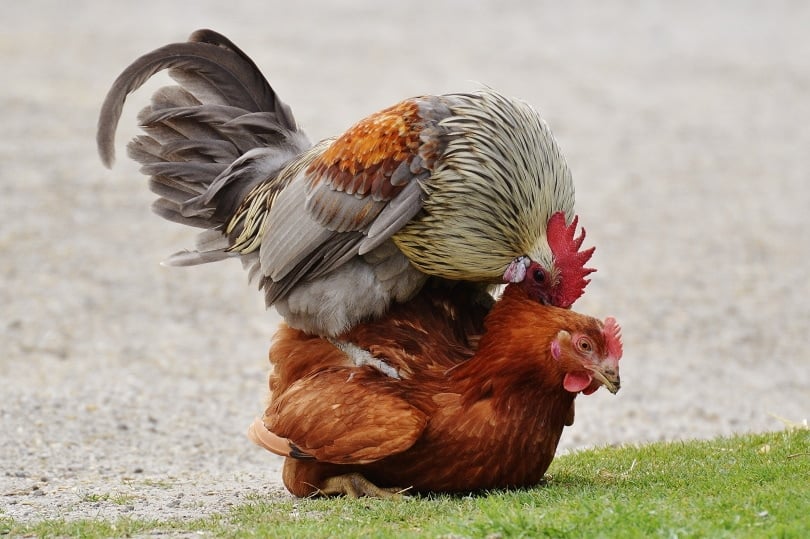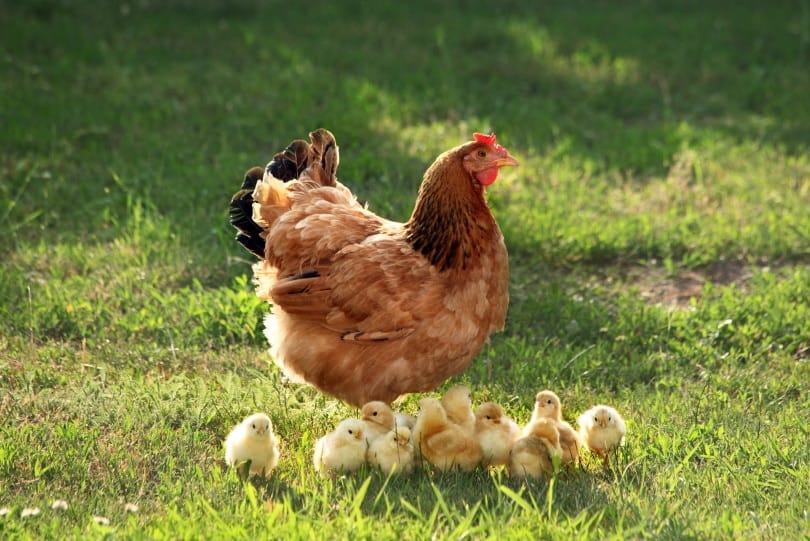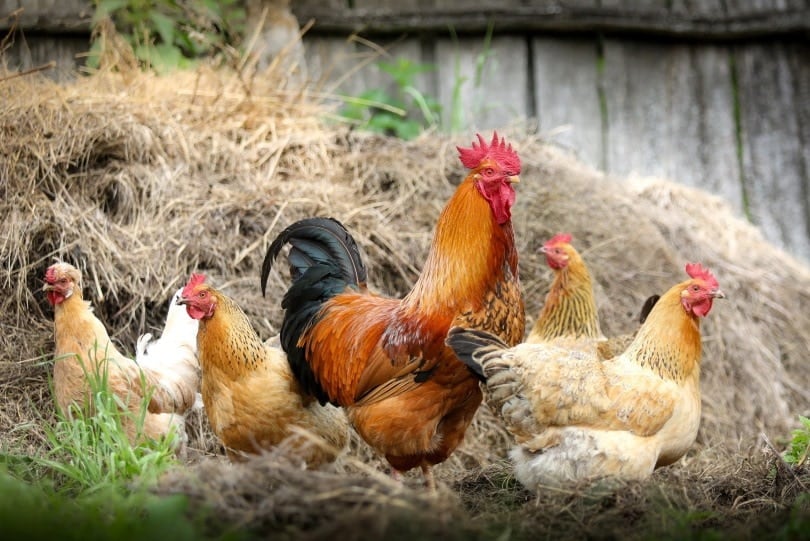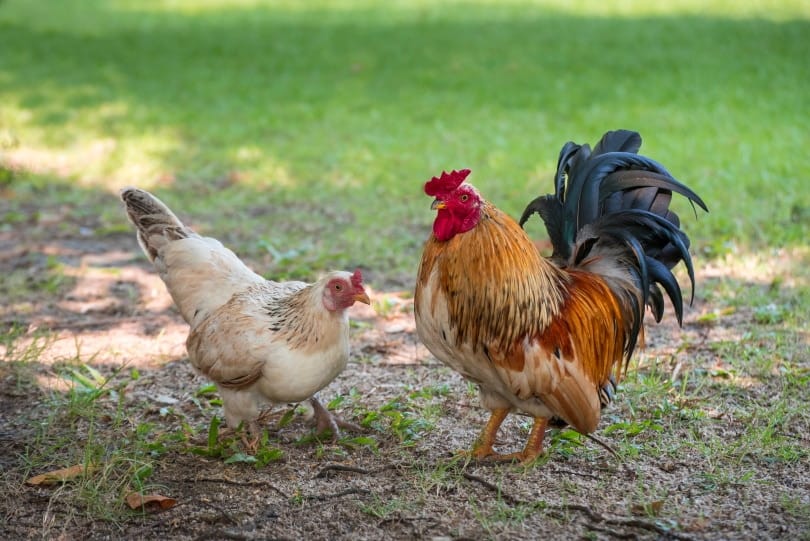If you’re a chicken owner, it’s important to understand how chickens’ mate. Chickens don’t mate like humans, but they mate often, and this, in fact, is important because it can cause problems for your hens, especially if you have more than one rooster. Hens don’t need a rooster to lay eggs; they do this on their own. Without a rooster’s presence, the eggs will not produce a chick but rather end up on the breakfast table. It’s for this reason that egg producers don’t own roosters. Hens lay an egg approximately once every 26 hours.

Mating Dance
Roosters do a mating dance prior to mating with a hen. He circles around the hen with his wings stretched down and scuttles his feet across the ground. He will also dig at the ground as a way of propositioning the hen and claiming his territory.
If the hen is willing to accept his proposition, she squats on the ground to allow the rooster to mount her. While the rest of the mating process is brief, it’s rather brutal. The rooster will grab the hen by the top of her head, stand on top of her back, and lower his cloaca. During this process, the hen will often make loud vocalizations or squawking noises that make her sound distressed. These noises are normal, and she isn’t usually injured.

The hen will invert her vent so the mates and touch the cloaca, at which point the male’s semen is transferred into the female. It will make its way up the oviduct to fertilize an egg.
Once the process is completed, the hen will get up, shake her feathers, and go about her business. A rooster’s semen can live for up to one month inside the hen, so while they may not produce a fertile egg immediately, it doesn’t mean they won’t do so in the future.
Fertile egg production is usually not an issue as roosters will mate with hens several times each day. It’s also not uncommon for hens to produce chicks up to a month after they have been exposed to a rooster.
Chickens Mate for Social Purposes
Chickens don’t just mate for reproductive purposes. They also do it socially as part of establishing a hierarchy in the flock. While it may seem odd to us as humans, many species “mate” or “mount” to show dominance. This is true of horses, dogs, and goats, to name a few.
A flock of chickens has a strict social order. If there is a single rooster, he will always be at the top, followed by the hens, and then cockerels and younger pullets. If there are multiple roosters in the flock, they will compete with each other for access to the hens, either by fighting (thus the term cockfighting, as cock is another term for rooster) or by mating with the hen successively. The top rooster will be successful in fertilizing an egg, which means he has passed his genetics on to the resulting offspring.

If you don’t have enough hens for multiple roosters, this competition can have dangerous consequences for both roosters and hens. While female chickens are usually compliant with roosters competing for a mate, over-mating leaves them vulnerable to health problems. Without enough hens to mate with, roosters will compete fiercely, sometimes even killing each other in the process. In most cases, intervention or separation will be required if you have more roosters than hens.
Things to Watch for When Chickens Mate
The first thing to watch for when it comes to chicken mating is to make sure your hens aren’t stressed from over-mating. You’ll know there’s an issue if they have a lot of missing or broken feathers on their back. This indicates they are mating so frequently that the rooster is causing damage to their body. Sometimes over mating can also result in raw sores on the back of your hen’s head.
Check your hens for wounds. They often appear sweet and compliant, but this doesn’t always mean the rooster isn’t hurting her. If your hens are getting hurt, they should be moved so the rooster can’t access them.
Anytime you introduce a new rooster, it’s critical to keep an eye on them. Some roosters are very aggressive in establishing dominance, and they are capable of causing grievous damage to other chickens in your flock, both hens and roosters alike.


Summary
Chicken mating is a natural process, and it usually takes place without incident. It’s important to watch hens for signs of over-mating, particularly in coops that contain more than one rooster. Roosters can be very aggressive in their efforts to assert dominance, so it’s important to make sure they are not hurting other chickens.
Featured Image Credit: MODMOD, Shutterstock
